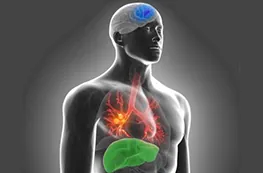University of Kansas Cancer Center
Kansas City, Kansas
Cancer-Types Supported
Click a cancer type below to learn more:
Credentials
Professor, Department of Cancer Biology
Hall Family Professorship in Molecular Medicine
Adjunct faculty of Department of Molecular & Integrative Physiology

Research Projects
Metastasis – when cancer cells spread from the tissue of origin to other parts of the body – is the most deadly attribute of cancers and is responsible for more than 90% of deaths and loss of quality of life. A better understanding of metastasis is required so that physicians can intervene and save lives of cancer patients.
In metastasis, the spread of cancer involves genetic and environment-influenced processes that result in coordinated expression of 10’s to 100’s of genes. NFCR-supported expert in metastasis, Dr. Dan Welch, and his team have identified genetic contributions from the mitochondria – specialized cell parts that have their own unique genes – that affect metastasis. These genetic contributions are fragments of RNA that do not code for proteins, called tRNA fragments (tRF), and can potentially explain why some cancers are more or less efficient at metastasizing. Moreover, the tRNA fragments could explain the racial disparities in cancer outcomes.
Dr. Welch discovered two tRNA fragments that may regulate metastasis possibly by interacting with bacteria in our body.
The field of tRNA fragments is new and requires new technique and computational approaches. tRNAs fragments may be greatly modified in cells, affecting their function. With NFCR support, Dr. Welch is collaborating with Dr. Isidore Rigoutsos, an expert in computational methods, to isolate the different tRNA fragments and characterize their function in cells. Dr. Rigoutsos developed the MINTmap – a software program that catalogues human tRNAs. Together, they will develop a mouse version of MINTmap to identify the tRNA fragments from different metastatic models of mice. The mouse-MINTmap will allow the scientists to compare experimental mouse studies of tRNA fragments in metastasis with human cancers.
IMPACT
This research will develop critical foundational information needed to understand how mitochondrial DNA and its tRNA fragments impact cancer metastasis. This needed information can identify new biomarkers of metastasis and/or therapeutics. Moreover, the information will be readily available with user-friendly platforms to accelerate the discovery and characterization of tRNA fragments by other labs worldwide.
Of the tools that are currently available to study tRNA fragments, only MINTmap accounts for well-documented features of the architecture of the human genome. These features include hundreds of incomplete instances of tRNA precursors that riddle the genome, eight regions of the nuclear genome that are identical to seven mitochondrial tRNA, and hundreds of regions that bear differing degrees of remaining sequence similarity (“tRNA lookalikes”) to nuclear and mitochondrial tRNA. This allows MINTmap to correctly report “true” tRF while tagging as “ambiguous” those short RNA that could arise from non-tRNA-related genomic sources. Such considerations are critical because the output of tRF identification tools informs the design of lengthy experiments. Unlike MINTmap, the general-purpose tools that have also been reported in the literature fail to account for these matters leading to documented errors. Because the genomic architecture features that affect tRF discovery differ between human and mouse, and among mouse strains, mouse-strain-specific MINTmap tools are needed. Once available, mouse-MINTmap will also allow us to compare experimental mouse studies with human cancers.
This two-pronged approach will permit Dr. Welch to not only develop novel metastatic cancer markers to assess a patient’s likelihood of developing metastasis, but also to develop unique anti-metastasis therapies. His current research regarding cancer metastasis has high impact for patients with breast, lung, ovarian, pancreatic, prostate, kidney and skin cancer.
Background
Danny R. Welch, Ph.D., received his bachelor’s degree in biology from the University of California at Irvine and a Ph.D. from the University of Texas-Houston in tumor biology. Following his doctoral research, he became a research scientist at the Upjohn Company and Glaxo pharmaceuticals. At both companies, he was responsible for pre-clinical testing of anti-cancer drugs. In 1990, he joined the faculty of the Pennsylvania State University College of Medicine where he ascended the faculty ranks to the level of Associate Professor. In 2002, Dr. Welch joined the faculty of the University of Alabama at Birmingham as a Professor of Pathology and Director of the Metastasis Program at the Comprehensive Cancer Center.
From 2002-2018, Dr. Welch led the NFCR Center for Cancer Metastasis. His teams have discovered 8 of the 30 functionally defined genes that suppress metastasis. These metastasis suppressors can be mutated or overexpressed, and lead to metastasis. In 2011, he founded the Department of Cancer Biology at Kansas University Medical Center. Moreover, Dr. Welch is a Komen scholar and president of the Cancer Biology Training Consortium. He has served on numerous grant review panels for the National Institutes of Health, Department Of Defense, American Cancer Society the Susan G. Komen organization, the European Union and other international agencies.
Dr. Welch has served as editor-in-chief for Clinical and Experimental Metastasis and is currently a deputy editor at Cancer Research. He is also co-editor of the textbook Cancer Metastasis. Throughout his career, Dr. Welch has authored more than 200 peer-reviewed publications and more than 35 book chapters, and he’s the recipient of numerous mentoring and teaching awards.
Collaborator:
Our approach emphasizes a collaborative, team environment to accelerate new breakthroughs.
Accelerate innovative research like this and help save cancer patient lives.
Research Focus Areas
Select a Focus Area Below to learn more and see others working in these area.














